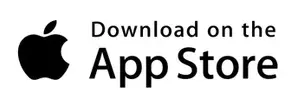Intel, Nvidia, Eli Lilly rise premarket; BP, Novo Nordisk fall
Investing.com — U.S. stock futures edged higher Tuesday, with traders awaiting the start of a two-day testimony from Fed chief Jerome Powell to Congress.
Here are some of the biggest premarket U.S. stock movers today:
Intel (NASDAQ:INTC) stock leapt 2.4% after gaining over 6% in the previous session, while Nvidia (NASDAQ:NVDA) rose 1.5% and Marvell (NASDAQ:MRVL) was up 0.5%, as stocks linked with AI continued to be favored.
Amazon (NASDAQ:AMZN) stock rose 0.2% after the online retail giant announced a new $79 Echo Spot alarm clock with a revamped design and improved audio quality.
Pfizer (NYSE:PFE) stock rose 0.1% after it announced its chief scientific officer Mikael Dolsten would step down after a more than 15-year career at the drugmaker.
Eli Lilly (NYSE:LLY) stock rose 0.4% and Novo Nordisk (NYSE:NVO) stock fell 1.8% after the publication of a data analysis showing Eli Lilly’s treatment Mounjaro leads to faster and greater weight loss than Novo’s popular obesity drug Wegovy.
Lucid Group (NASDAQ:LCID) stock fell 0.6% after the EV manufacturer will have to recall over 5,000 of its 2022-2023 Air luxury sedans due to a software error that could cause a loss of power.
BP (NYSE:BP) ADRs fell 4.1% after the energy giant warned that its second-quarter results will be hit by lower refining margins and it also expects to post an impairment of up to $2 billion.
Helen of Troy (NASDAQ: HELE) stock slumped 27% after the consumer products company reported disappointing first-quarter results and slashed its full-year outlook, amid weakness in its beauty and wellness business.
Bullish positioning in US equities has been ‘getting more extended’ – Citi
According to the latest Citi Equity Markets Positioning Model note, the early focus on US elections, sparked by the presidential debate, has not curbed the risk appetite and bullish positioning in US equities.
Positioning has been “getting more extended,” according to analysts. “Nasdaq futures and ETF positioning have both become very extended and this is now the most bullish positioning by some margin.”
Meanwhile, the most recent S&P flows have also been bullish, although the analysts note that mixed historical futures flows and recent ETF outflows leave a more balanced setup.
In Europe, the recent UK and French elections resulted in European futures positioning turning neutral in the past month.
Ahead of those elections, Citi said investors were mostly de-risking, with open interest falling. “Previously bullish positions across Europe had started fading before the election campaigns began but have now turned neutral or slightly bearish,” they stated.
“Elections have now passed but for France there is little visibility on the formation of a government, not to mention uncertainty on French policies,” the analysts write. “At this juncture it’s hard to see a meaningful change in positioning for continental Europe without some clear positive catalysts. The upcoming reporting season could be a catalyst.”
Middlemen have outsized influence on US drug prices due to market consolidation, FTC says
WASHINGTON (Reuters) – The consolidation of pharmacies and health insurance companies through years of deal making has led to a handful of pharmacy benefit managers exercising outsized influence over prescription drug prices, the U.S. Federal Trade Commission said on Tuesday.
Pharmacy benefit managers, or PBMs, act as middlemen between drug companies and consumers. They negotiate volume discounts and fees with drug manufacturers, create lists of medications that are covered by insurance, and reimburse pharmacies for prescriptions.
The FTC argues the three biggest PBMs – managing 79% of U.S. prescription drug claims – have greatly enriched themselves at the expense of smaller pharmacies and consumers, according to an interim staff report calling for possible greater regulation.
“These powerful middlemen may be profiting by inflating drug costs and squeezing Main Street pharmacies,” the FTC said in its findings, two years into an investigation of top PBMs and their impact on prescription drug prices in the United States.
The consumer protection agency “will continue to use all our tools and authorities to scrutinize dominant players across healthcare markets,” said FTC Chair Lina Khan.
The three biggest PBMs are UnitedHealth Group Inc (NYSE:UNH)’s Optum unit, CVS Health Corp (NYSE:CVS)’s CVS Caremark and Cigna Corp (NYSE:CI)’s Express Scripts.
The report included some closely guarded information about how companies, such as CVS Caremark, contract for formulary placement for drugs.
Formulary drugs is the term used for the list of medications covered by various insurance plans.
The report also detailed how the three largest PBMs recently established separate affiliated entities called group purchasing organizations, or PBM GPOs, that negotiate contracts and rebates with drug makers, traditionally something the PBMs engaged in directly. The term GPO usually refers to companies that purchase drugs and medical supplies on behalf of healthcare providers.


